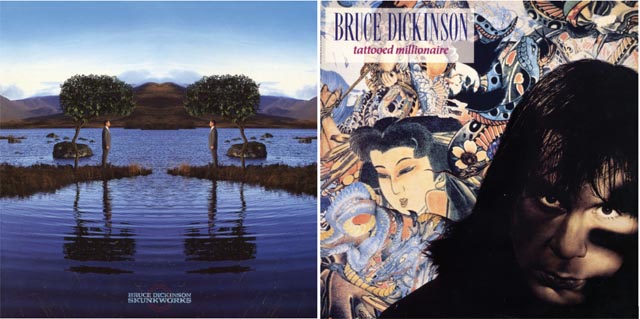 As you may know, record labels and musicians are preparing to battle it out over copyright laws concerning ownership over albums. This all pertains to a U.S. copyright law that was amended in 1976, giving artists the right to regain rights to their work after 35 years. Thus, the first batch of albums created after January 1, 1978 (the date that the law went into effect) will be eligible to “terminate rights” from labels in 2013 as long as artists apply two years in advanced. Many artists, like Tom Waits, Bob Dylan and Tom Petty , have already sent in their applications, while more artists such as The Eagles are still weighing their options (drummer/singer Don Henley is also a co-founder of the Recording Artists Coalition).
As you may know, record labels and musicians are preparing to battle it out over copyright laws concerning ownership over albums. This all pertains to a U.S. copyright law that was amended in 1976, giving artists the right to regain rights to their work after 35 years. Thus, the first batch of albums created after January 1, 1978 (the date that the law went into effect) will be eligible to “terminate rights” from labels in 2013 as long as artists apply two years in advanced. Many artists, like Tom Waits, Bob Dylan and Tom Petty , have already sent in their applications, while more artists such as The Eagles are still weighing their options (drummer/singer Don Henley is also a co-founder of the Recording Artists Coalition).
This is great for musicians, as it gives them the direct power of their master tapes. They would be able to license their music to advertisers, sign a deal with a different label on their own terms, or distribute the music themselves. For the record labels, though, this is bad news. Catalogs have not only been a major source of revenue for them, but one of the only stable sources of profit as of late thanks to decreasing album sales and ticket purchases. It’s no surprise, then, that the major labels and RIAA aren’t going down without a fight, having already announced plans to pursue legal battles over these recordings.
While Bruce Springsteen’s Darkness on the Edge of Town, Billy Joel’s 52nd Street, and the Eagles’ The Long Run are a few of the major albums eligible for termination, the first batch of eligible albums may also include a few heavier releases. Though it is not necessarily clear if these artists already own all of their master tapes, here are a few metal/hard rock albums that came out in 1978:
AC/DC’s Powerage
Van Halen’s Van Halen
KISS’ solo albums
Black Sabbath’s Never Say Die
Judas Priest’s Stained Class
Queen’s Jazz
Alice Cooper’s From The Inside
Rush’s Hemispheres
Rainbow’s Long Live Rock ‘n’ Roll
The Scorpion’s Taken By Force
Whitesnake’s Trouble
With a few exceptions, these albums aren’t necessarily huge titles. And even if they don’t own their master recordings, it’s not a guaranteed thing that they would opt for termination. However, the threat to labels is still very evident. While the RIAA is trying to claim that these artists are the labels’ “employees” and the records are “works for hire,” there’s also the argument that aren’t given the same benefits (like Social Security pay or taxes withdrawn from payment) as most employees at a job.
The debate will continue on for sure, but looking pretty bleak for an industry already struggling to float.
[via Rolling Stone and The New York Times]












